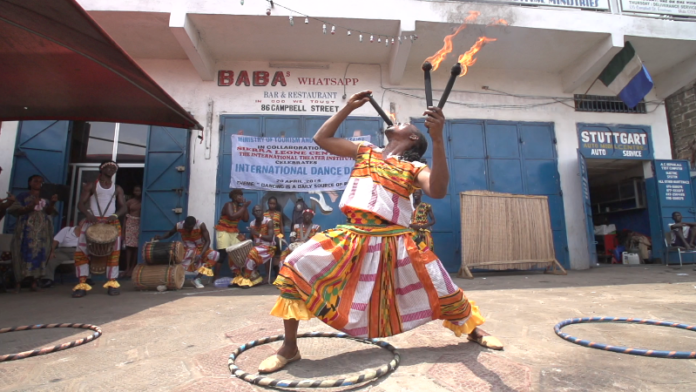Sierra Leonean Women :It’s been more than two years since Sierra Leone declared a state of emergency over sexual and gender-based violence.
The declaration followed a public outcry over a spate of high profile sexual attacks in which minors made up one in three victims.
Though unconstitutional, the state of emergency led to significant legal amendments.
The minimum sentence for rape was increased from five to 15 years for adults.
New provisions also criminalised informal out-of-court settlements for sexual assault and rape.
These amendments have generally been welcomed as a positive step.
But some have criticised the emphasis on sexual violence, particularly of young girls, at the expense of other types of gender-based violence.
According to the 2019 demographic and health survey, about 62% of Sierra Leonean women aged 15-49 have experienced physical or sexual violence.
Everyday violence within marriage is rife but receives less attention in legislation and political discourse.
Women are also quite reluctant to discuss violence in their own marriages for a variety of social and cultural reasons.
Conversations sparked by the performances confirmed that issues such as domestic violence, infidelity, abandonment and polygamy were all recognisable and prevalent in communities. Both men and women spoke of lack of communication in marriage, tensions over financial strains or sexual dissatisfaction.
These ultimately resulted in infidelity and violence.
Many men believed that the payment of a bride price gave them a right to sex freely offered or, if not, taken by force. For women, withholding sex was one of the few acts of power and resistance they felt they had in the marriage.
Yet it carried the risk of an unsatisfied husband seeking sex elsewhere.
Many women spoke of the rejection and desperation they experienced when their husband took a new wife or girlfriend.
Much of the content and themes discussed were similar across all three of the performing art forms we explored.
But we did notice a different quality to the conversations depending on the performance style.
The interactive drama techniques we employed are designed to promote critical reflection in the audience. These help to identify social problems and invite participants to work through solutions.
By contrast, the songs that women danced to focused on the emotional and bodily pain of their husband’s betrayal.
Women had various reasons for singing in everyday life: to gain the attention of the husband or family members to discuss the issue; general relief for many who felt powerless; or, at times, connection with other women.
The comedy and interactive drama offered an entertaining and engaging way for people to reflect upon situations they recognised.
But it was evident the songs provided more immediate access to deeply felt emotions arising from personal experience.
While there was a sense the group singing soothed such pains, for many women singing was a way to unsettle or even disturb.
A number of men expressed their unease with these types of songs in the household, referring to them as offensive or provocative.
This hints at the capacity for this form of self-expression to underline women’s personal anguish, and the subtle and creative ways women express these feelings.
The most common and pervasive forms of pain in the everyday lives of Sierra Leone women require attention from local officials and policymakers.
The insidious nature and general “acceptability” of these acts is precisely what makes them so scary, and in need of being addressed.
Source : theconversation.com


